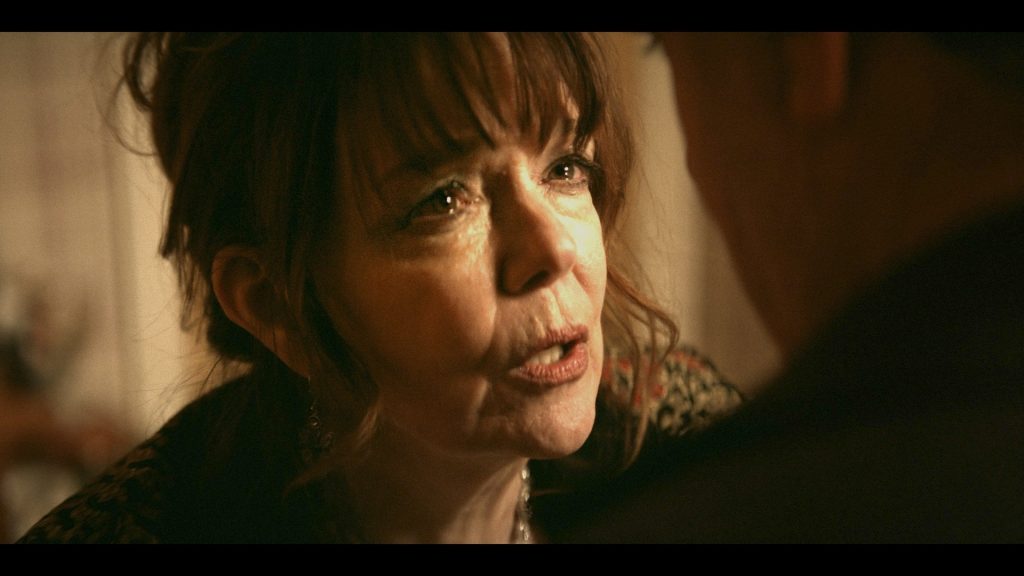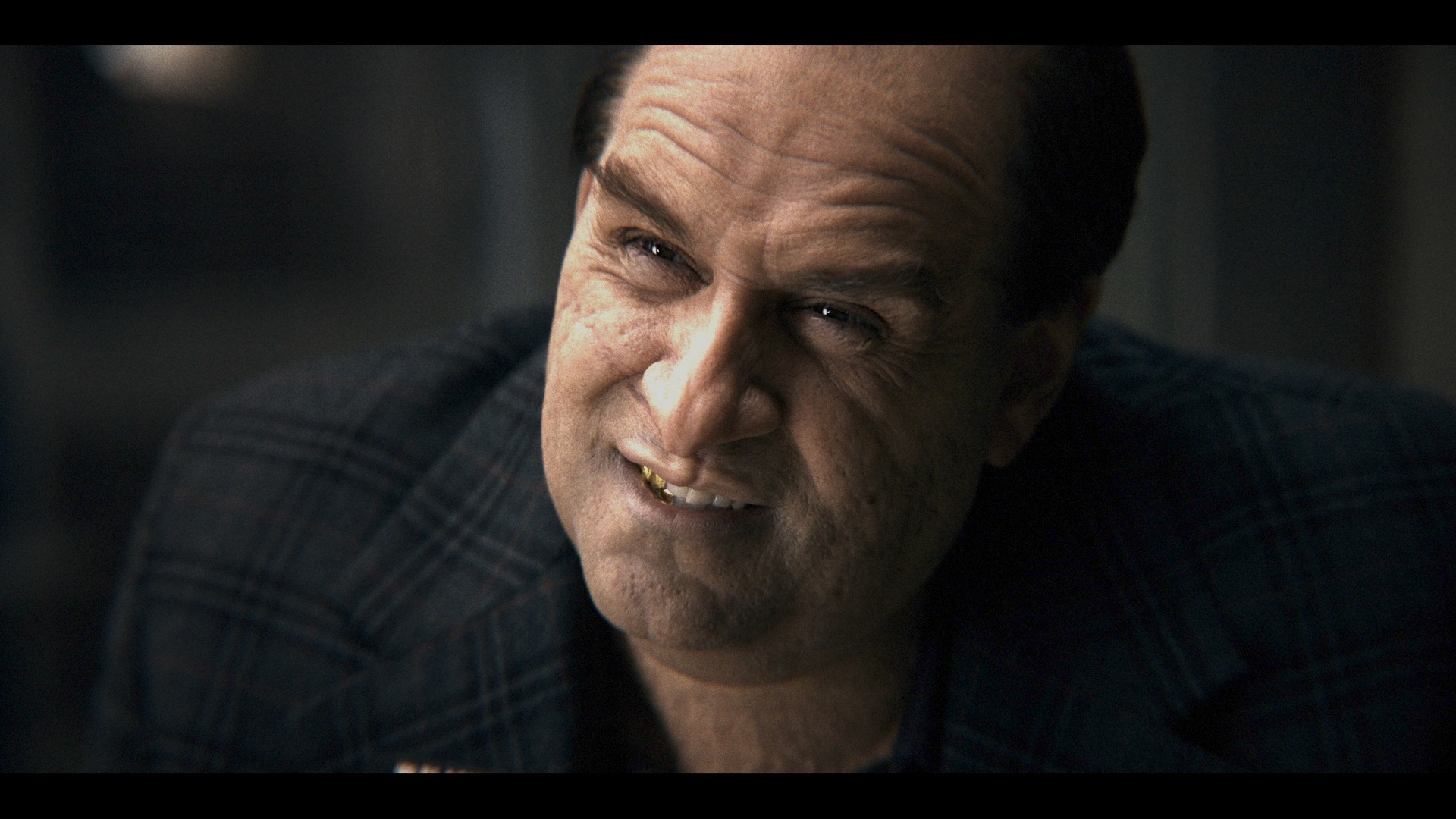- Showrunner Lauren LeFranc Compares Oswald Cobb’s Ruthless Rise To Power To Scarface In “The Penguin”
- Lauren LeFranc Discusses The Writing Process For “The Penguin” And Offers Some Screenwriting Career Tips
Oswald “Oz” Cobb (Colin Farrell) has a funny walk. He waddles like a penguin, hence his name. But don’t let his seemingly harmless name fool you. His only goal is to make Gotham City his own by any means. Narratively, The Penguin is the limited series which follows Matt Reeves’ film The Batman in 2022.
Showrunner Lauren LeFranc (Agents Of S.H.I.E.L.D, Impulse) spoke with Creative Screenwriting Magazine about Batman’s famous nemesis about creating a deep character study in her new TV series.
Who Is The Penguin?
“Oz is a very complicated, narcissistic man. I want you feel engaged by him without making excuses. I also wanted the world to feel in the same tone as in The Batman,” explains LeFranc.
The Penguin claims to speak to the “everyman” in Gotham City to justify his violence. His aim is to stamp out corruption in his beloved city and bring equity to its citizens.
Batman and The Penguin are not only polar opposites in their ideologies, but also in their backgrounds. LeFranc notes that most Batman films and television shows are told mainly through Batman’s perspective. Presenting The Penguin through Oz’s worldview shifts the tone and perspective of the show through a new prism.
LeFranc wanted to explore potent themes of masculinity, class, wealth disparity, and trauma in The Penguin, making the series a character exploration about a dysfunctional crime family.
The stylistics of The Penguin are “a slightly heightened world” according to Lauren. There is little doubt which actual city Gotham is referencing, but we need a fictitious city to give the story a lift.
“I think it’s important to have a strong foundation and a vision that feels like this is speaking to larger aspects of the world that we live in and really trying to push the boundaries in that regard.”
The Penguin Rises To Power
Matt Reeves made The Batman in 2022 and depicted The Penguin in a certain way. Lauren was asked to create a limited series before she’d even watched The Batman or even read the screenplay.
The network wanted a rise to power story in the vein of Scarface
Lauren LeFranc became excited with this brief and her potential interpretation of this character. She wanted to emotionally and psychologically explore the makings of a monster. “I think Scarface is a great tonal reference, but it’s dated and glamorizes violence,” she adds. It was time for an update.
The showrunner partially based Oz Cobb’s character on Buddy Cianci, the former mayor of Providence, Rhode Island for twenty-one years. “He was extremely charming and would say the funniest, wildest things, but was extremely corrupt and violent.”
Matt Reeves established The Penguin as a subordinate to Carmine Falcone in his film. “That’s a different depiction of Oz than in the comics,” notes LeFranc. Power means different things to different people. For Oz, it’s love and acceptance by the people of Gotham City, but more importantly, his mother.

Francis Cobb (Deirdre O’Connell) Photo courtesy of HBO Max
“Oz’s deep desire from grasping for power is to make his mother Francis (Deirdre O’Connell) proud of him. If he achieves power on some level without that validation it’s not the same to him. That’s kind of opening up things to different psychological wounds. That’s the heart of the emotional journey that Oz goes on. He basically blunders his way through to becoming a criminal mastermind.”
Francis Cobb’s (Deirdre O’Connell) relationship with her son Oswald might be considered to be transactional. She’s a harsh parent who won’t sugar-coat the struggles of life.
Oz’s “grit, drive, power, and strength are rooted in his mother,” continues Lauren LeFranc. The showrunner doesn’t subscribe to the “blame the parents” paradigm. Francis is maternal in her own way and raises Oz to survive.
Like all the characters in The Penguin, Lauren LeFranc’s sole aim is to foster a deeper emotional understanding and connection to them, without judgment.
Daytime Noir
Batman typically comes out at night and that is where most Batman films are set. Lauren LeFranc went for a “French connection tone in The Penguin, where we’re partially in shadows, but it’s set in the day.” This sharply contrasts against the gritty, grimy darkness where much criminal activity takes place.
The Penguin isn’t like Batman. He wants to be publicly out there, loved and revered by the people. He sees himself as their savior and has no issue with his behavior because it serves a greater purpose.
This is the tone that Matt Reeves established. The Penguin is a psychological character study about a man who deeply wants to be understood. While there will always be a nod to the source material, LeFranc’s aim for The Penguin was to create a “grounded crime drama.”
Lauren has always been fascinated by larger than life monster-gangster stories and researches them heavily. “The Penguin is a real man and a really big, elevated character.”
She cites Gus Fring (Giancarlo Esposito) in Breaking Bad – a master criminal in plain sight for comparison.
The Penguin has a brutal honesty and rawness that makes him relatable. He’s an underdog who’s come from a poorer background and often speaks about the unfairness in the world.
“Batman is up high looking down on Gotham City while Oz is in the streets. He’s in the muck, the grit, and the grime.” There’s a dirty, ugly, and painful reality about being on the streets.
Despite all the murkiness, The Penguin contains some delicate comedic strokes to interrupt the underlying darkness. “Oz is more of a wild man character. He’s unpredictable, relentless and a little weirdly charming. So the tone and the energy of our show and his voice needs to fit within that.”
